KELLOGG’S SALES Co., Battle Creek, MI * “Sugar Frosted Flakes Are GREAT!” * 1963
![]()
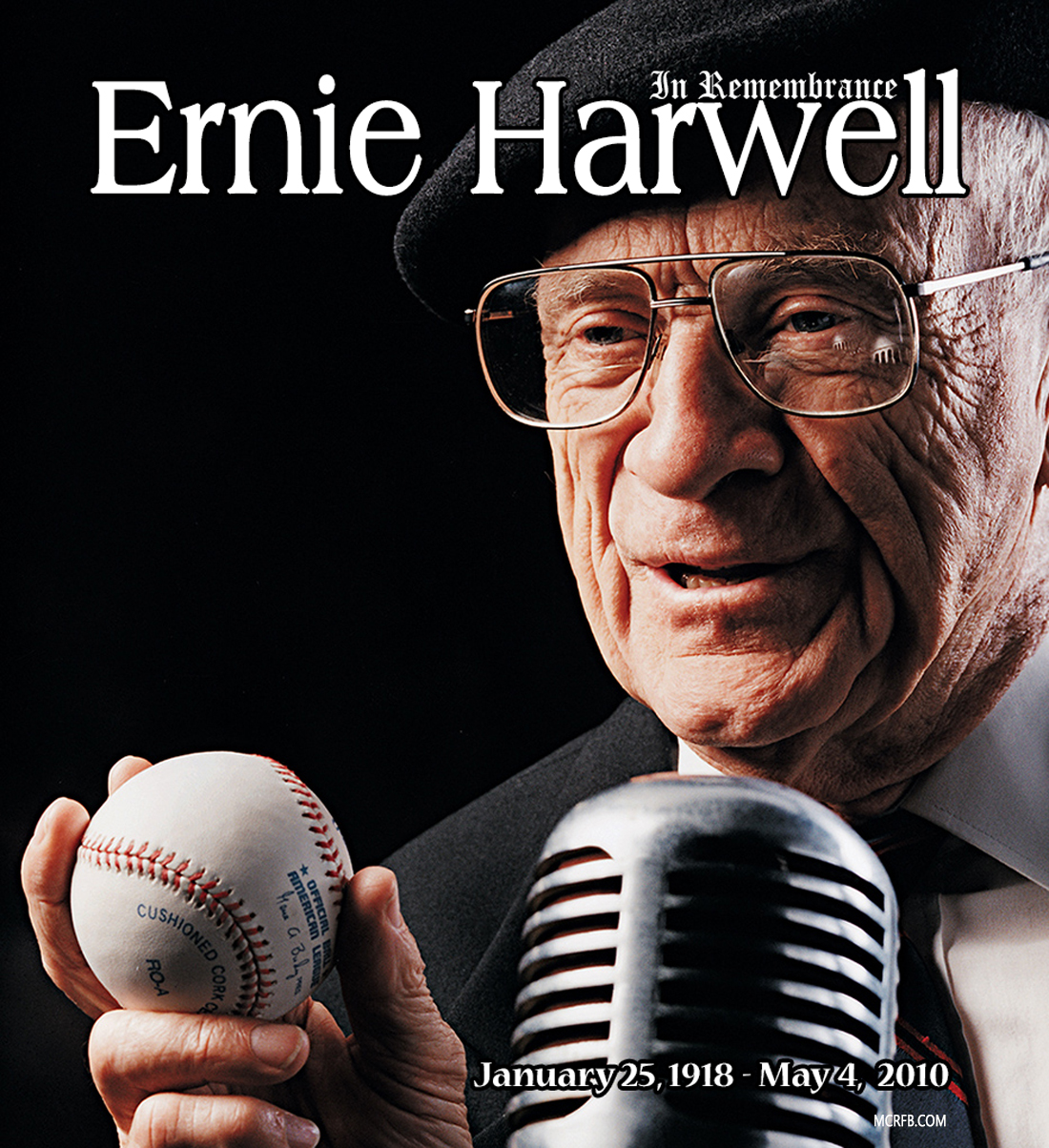
THE DEFINITION OF BASEBALL * Ernie Harwell * Ernie Harwell’s Audio Scrapbook (2009)

___
DETROIT (May 14, 2015) — Ernie Harwell. Five years having passed. Since the summer voice of Tigers baseball went silent, Tuesday, May 4, 2010.
In wake of his passing, I was compelled I pay my final respects for Ernie Harwell that day, as he lay in repose in an open casket, a cold morning that was Comerica Park, May 6, 2010.
As most of you already know, this was Ernie’s expressed desire.
Sometime in 2009, after having been diagnosed with incurable cancer, Ernie had asked this of his friend, Mike Illitch. Of course! Mike said, whatever you want, Ernie!
It would be, somewhere I had read, in a sense, Ernie’s way of saying goodbye to us all for the last time. (Ernie’s funeral was private. It was held for members of his family only, as he had wished).
I arrived at Comerica Park, before 8:30 AM. The line was, to my surprise, very sparse that morning. In gazing upon the very reason why I were there, I reflected upon this gracious man who laid there in peaceful solemnity before us all.
Dave Dombrowski, the Detroit Tigers General Manager, stood waiting at aisle’s end. I extended my hand over to him. I took a moment to express my personal condolences. Dave listened. We shook hands. He personally thanked me for being there on behalf of Ernie Harwell, and the entire Harwell family. Likewise, just as he thanked and shook hands with everyone who came to the ballpark throughout the day, in saying their final goodbyes.
While many there held cameras, I asked a Tigers’ attendant permission — if I may be allowed to use my camera. I was assured the Tigers organization, on behalf of the Harwell family, had okayed use of personal cameras that day as well.
I left for my camera in my vehicle. Having returned, the attendants at the gates were kind enough allowing me back inside, with my camera, for a second time.
These were my moments I captured. With the exception of the very last one, I took these photographs in the forty-fifty minutes while there early that morning. I will share several of them with you today.
Ernie Harwell.
I knew the name from as far back as I can remember. When I first heard that distinct, Georgia-accented voice while listening to Tiger baseball at a very young age, along with my dad, on the radio. Was that 1960? Now that. That was a long, long time ago.
Ernie, thanks for the memories. May your soul find rest in God’s Eternal Mercy and Grace now and forevermore.
— Jim Feliciano




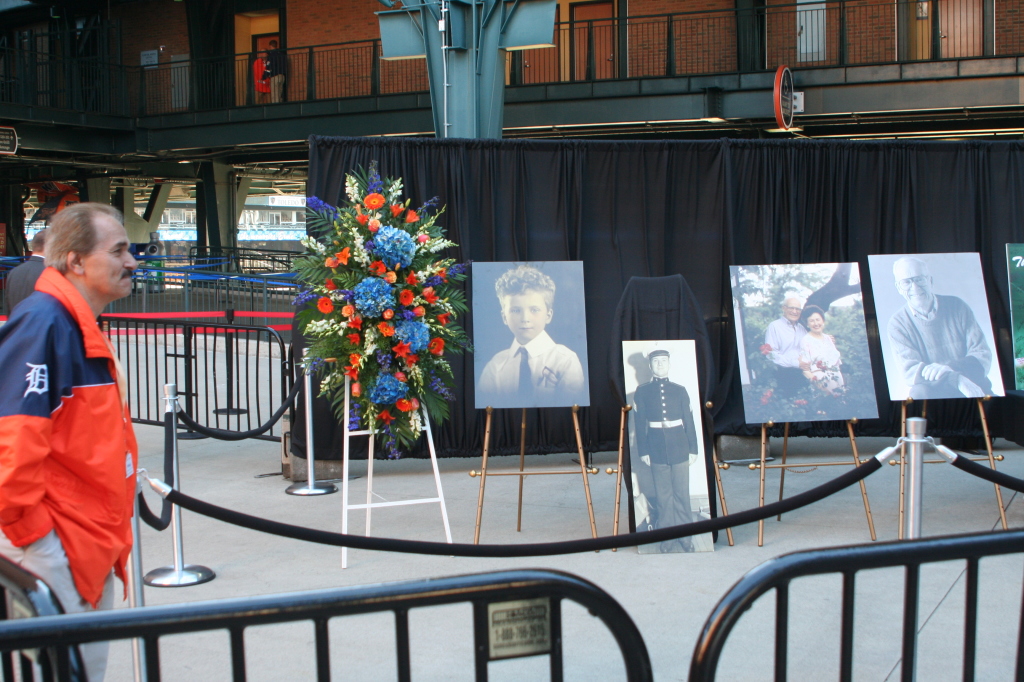






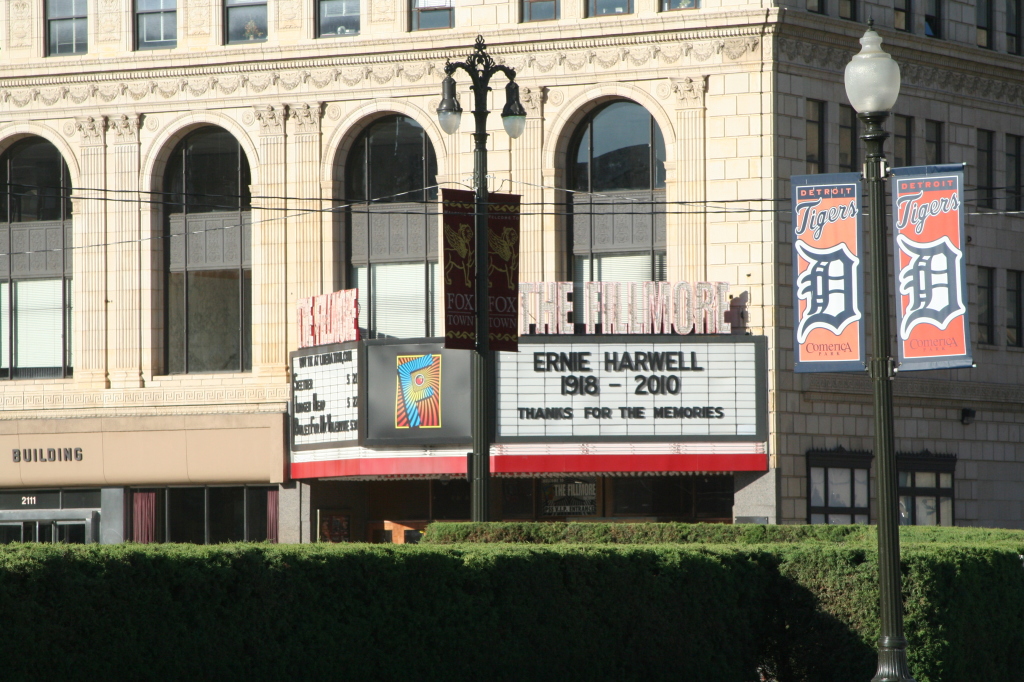





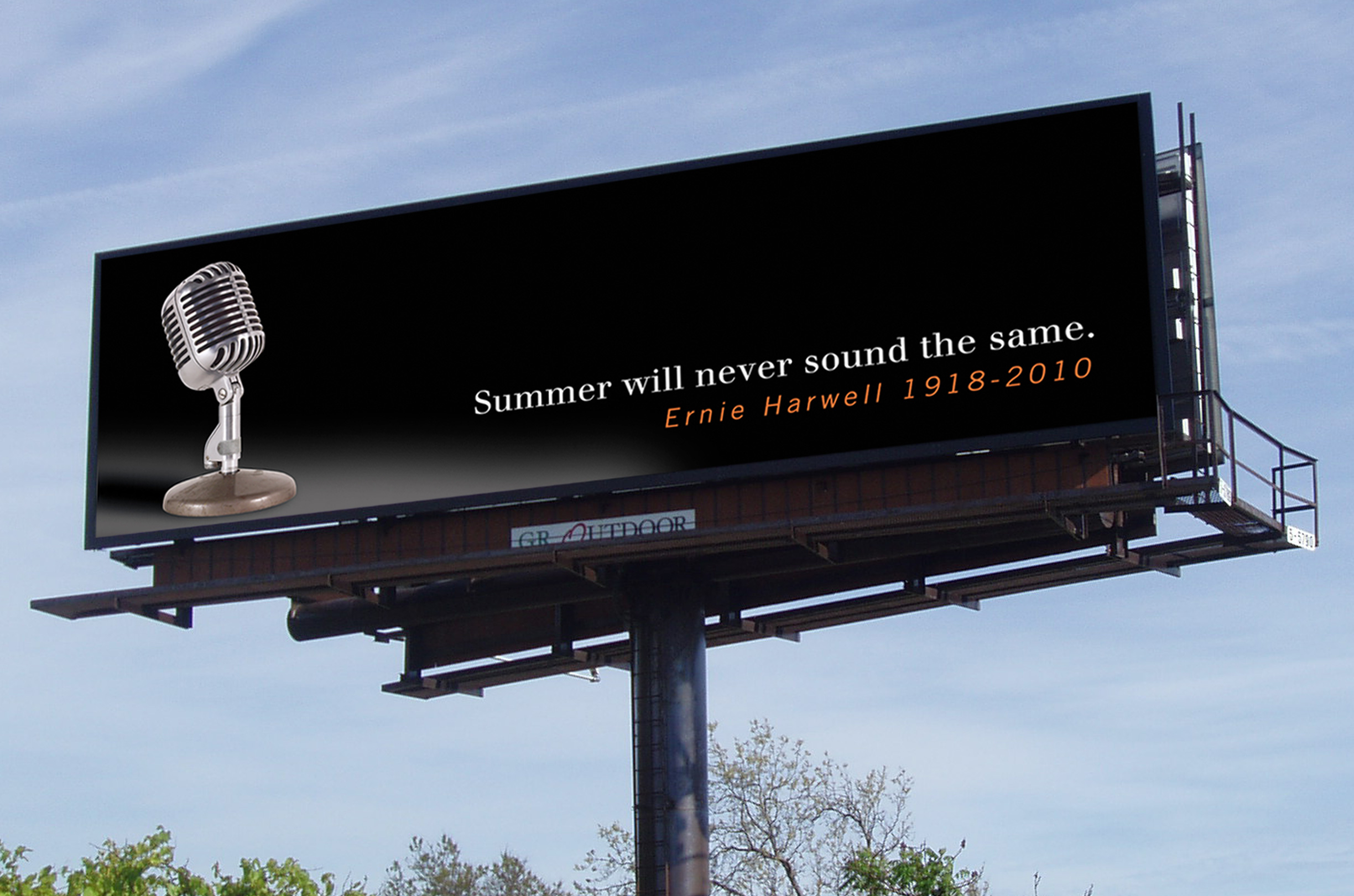

![]()
ELEVEN WEEKS on the singles chart, “Mrs. Brown You’ve Got A Lovely Daughter” by Herman’s Hermits peaked No. 01 (3 weeks) on the Billboard Hot 100, weeks of April 24, 1965 through May 15, 1965. (source: Billboard).
MCRFB Link: For the previous No. 1 record in the U.S.A. 1965 GO HERE.
![]()
 From the MCRFB news archive: 1970
From the MCRFB news archive: 1970
National Coordinating Council on Drug Abuse Education and Information Say Music Reflects Social Contents — Not Behavior
CHICAGO — Radio programmers worried about drug-usage connotations in lyrics and at the same time wondering how to fight the drug problem were told here that music doesn’t create social behavior — it only reflects it. Misinformation about drugs is what radio people has to be concerned about, according to Peter G. Hammond, executive director, National Council on Drug Abuse and Information.
Hammond, addressing the National Association of Broadcasters fall conference, told how his organization can help radio stations provide vital community information on drugs to counteract misinformation, hysteria and panic, “often perpetuated by various agencies.”
The council is providing films to libraries, the IF newsletter and a new drug abuse information service, Grassroots. Hammond noted the council plays on terms used by the drug culture (“grass” being a term used to describe marijuana) and at one point spoke on the “information fix” the council hopes to provide to broadcasters.
Hammond indicated that the music has sometimes become a scapegoat just as common as tension-relief drugs advertised on radio and TV. “You can’t place a complex problem like drugs on any one factor.” By way of illustrating the council’s point, he called attention to the Beatles’ hit recording of, “With A Little Help From My Friends.”
The song, which has been blamed on as promoting drug use, is the theme of a new film now available for public showing that argues for a reevaluation/interpretation of words such as “high” and “friends.” Kemper Insurance and the council worked together to produce the film.
Stations wishing more information can contact or write the council at Suite 212, 1211 Connecticut Ave., N.W., Washington, D.C., 20036. END
(Information and news source: Billboard; November 7, 1970).
![]()
 From the MCRFB news archive: 1970
From the MCRFB news archive: 1970
Mercury Records Under Fire for Pandering Music Many in Radio Regard Obscenity
CHICAGO — Mercury Records President Irwin H. Steinberg told broadcasters gathered here that it is their responsibility to determine if recordings are obscene. A music director countered saying such an attitude was “presumptuous” but Steinberg never backed down.

Moreover, the record company executive told the National Association of Broadcasters meeting that it would be “awful” if repressive measures inhibit labels from remaining conduits for the feelings (expressed) of young people, black people, and all kinds of other people.
During a hard-hitting session touching on nearly all of radio station record programming except “the distribution problem,” Steinberg talked openly about Mercury’s problem with the sexy French hit. “Je T’ Amie… Moi Non Plus” which sold 150,000 copies without not much airplay.
Mercury has drawn fire from broadcasters for recordings involving drug messages and profanity, he admitted. Veteran Georgia broadcaster and legislator, Edwin Mullinax, recently lashed out at the label for the use of “hell” and “goddamn” in a single.
Differences
Referring to complaints from broadcasters, Steinberg said: “There are amazing different attitude towards product. I had calls from two broadcasters 100 miles apart. One wanted to know how he could obtain six more copies of ‘J Te Amie…’ and the other stated that he and I really make the determination as to what people heard — had to set standards as to what morality was supposed to be.”
Steinberg said it is his opinion that there is really no way defining ‘obscenity.’ He said: “First, I will say obscenity is a highly emotional thing. There is no way measuring it objectively.”
“I will differ with you in terms of education, family, background, ethnicity, you name it — all kinds of area of exposure — and come to a different conclusion and so will you.”
“We have our measurement of what is obscene and it’s probably close to what the pornography report recently turned out by the President’s commission, which unfortunately, I think, he rejected.”
Steinberg hesitated as he went one step further to define obscenity. “The best word I can think of is disgusting — but we can get into a hell of an argument about what’s disgusting to.”
He said that he expected stations to listen to his product and that since a “hell of a lot of it is rejected” that stations must be listening.
“As far as I am concerned, we have a management responsibility to turn out product that sells and I must tell you that I don’t stand on that alone. I have some personal pride in the kind of product we turn out as well.”
A Conduit
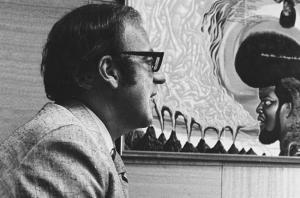
He said that his company felt to a certain extent what it turns out mirrors what is happening in America today — or throughout the world in the case of international product — and added: We’re sort of proud to be a conduit to a great extent for the feelings of young people, black people, people of all kinds. We feel we are such a conduit and I think there are not enough people who understand that.”
When it comes to lyric messages of love, drugs, obscenity and nonsense songs, he said: “It’s your job as far as I’m concerned to listen and decide whether you accept it or reject it; whether you feel it’s good or bad for your audience. We’re going to have to face either the success of the product or its consequences”
Later, during questions and answers, when his position and that of other labels was called presumptuous, Steinberg said that stations did not have to accept whatever was his own personal standards or those of his company — “I haven’t said that. You have a right to listen and reject just as your listener can switch to another station on the dial.”
Repression
He reiterated in saying “repressive” measures would be an “awful” mistake and added: “I hope we don’t get the kind of repressive measures that limit this kind of mirroring of what’s going on in our society.”
He equated this possibility to the “great blues we had in the past years that reflected the kind of anguish that the blacks felt during our greatest years of slavery.
In those times I’m sure there were a hell of a lot of people who would have preferred that whatever communications the blacks had about their problems didn’t exist. And I think that on the same basis it would be a mistake not to provide this conduit for the feelings of young America.
I think you’re in a hell of a spot to give an opportunity to the public to accept or reject the kind of poetry that young people are expressing.” END
(Information and news source: Billboard; November 7, 1970).
![]()